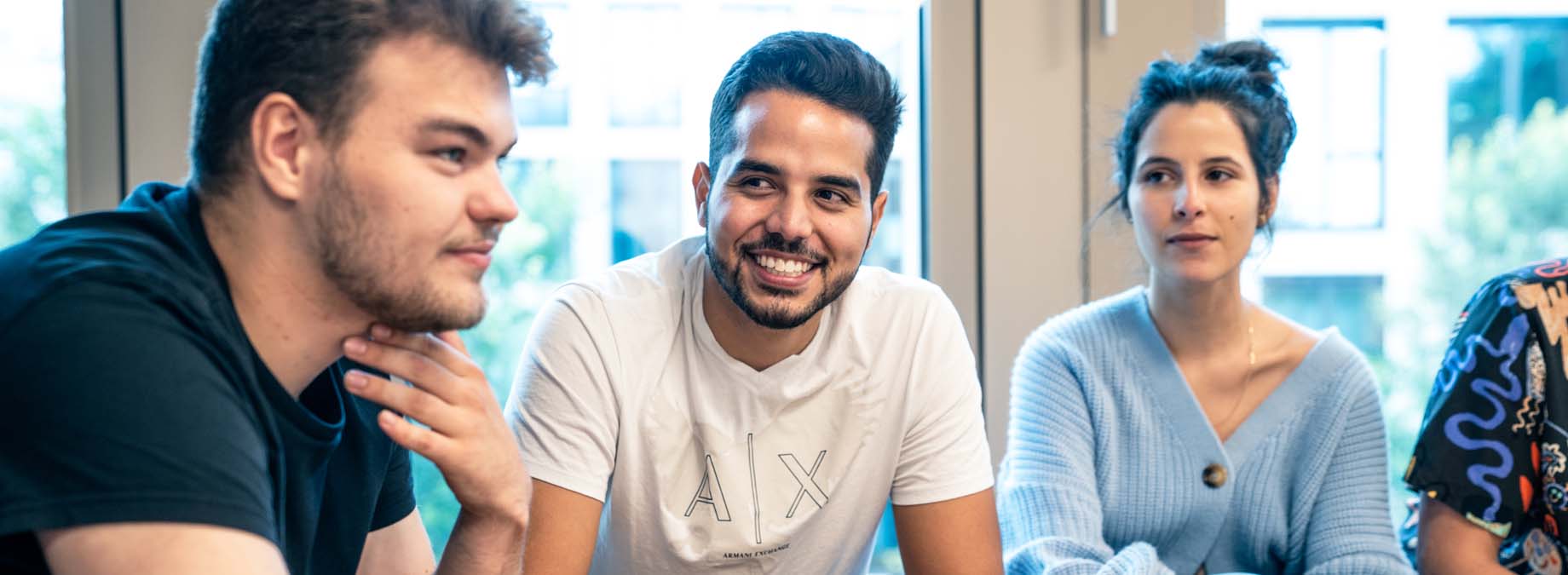

Ways Abroad
As a UE student, we help you organising your international experience.

Further Information
Erasmus+ Scholarship (only for Erasmus Partners normally in Europe)
Certified compatibility of credit systems with UE.
Your course selection must be agreed with the International Affairs Team before the stay abroad and recorded in writing in the Learning Agreement.
Funding opportunities & scholarships
The DAAD – German Academic Exchange Service is the world’s largest funding organisation for the international exchange of students and academics. UE offers scholarship programmes through Erasmus+ and Promos to students as well as faculty and staff.
What is ERASMUS+?
Erasmus is the EU's education programme to promote student and teacher mobility. Within the framework of ERASMUS+, for example, two, usually European, universities can enter a strategic partnership to promote the exchange of students. The participating students are granted scholarships (depending on the available funds). The exact regulations of ERASMUS+ can be read here.
What advantages do I have?
With ERASMUS+, you pay no tuition fees at the foreign university during your semester abroad and receive a scholarship (depending on available funds) in the form of a monthly grant. You will also benefit from the organised and reliable relationship between UE and your university abroad. In the context of an internship abroad, you can receive destination-dependent, financial grants for your internship.
Who can receive an ERASMUS+ grant?
Students enrolled at German universities who are nationals of a country participating in the programme or who are officially recognised as refugees, stateless persons or permanent residents in the country where they reside are eligible for student mobility. For further criteria, please contact the International and Career Affairs Team.
How can I apply for an ERASMUS+ scholarship?
To apply for an Erasmus+ scholarship, you will need a letter of motivation and possibly other documents in addition to the application documents from the respective ERASMUS partner university/company abroad. You will be informed about the exact procedure by the International and Career Affairs Team.
What are the selection criteria?
The following criteria apply to the awarding of an ERASMUS+ scholarship:
- Letter of motivation: Highlight your academic/professional goals for studying abroad; for example, focus on the modalities of research and teaching at the partner university.
- Grade point average
- Language skills
Erasmus Charter: The European Commission has awarded UE the Erasmus Charter for Higher Education 2021-2027. Possession of a valid charter is a prerequisite for participation in ERASMUS+. It commits us to promote student and staff exchanges and provides the quality framework for all activities within the ERASMUS programme. Read our ERASMUS+ policy statement here. The ERASMUS Charter for Students can be found here.
Zero-Grant Funding: Zero-Grant students receive a tuition-free ERASMUS place, but no mobility grant. If there are not enough funds for all ERASMUS participants, applications submitted before the deadline will be served first. Students who have applied after the given deadline may not receive a mobility grant at first. If additional funds are then available, zero-grant exchange participants may retroactively receive the mobility grant, which would then be the same as that of students funded from the beginning. Residual applicants must therefore be aware that they may either not be funded at all (low probability) or receive the grant only during or after completion of the ERASMUS study abroad programme (high probability).
PROMOS: Increasing the international mobility of students is of great importance to UE. The mobility programme, PROMOS, of the German Academic Exchange Service (DAAD), makes an important contribution to this with scholarships for studying abroad.
UE students are supported within the PROMOS framework in the following funding lines:
– Study visits
– Internships
– Study trips
All information about the PROMOS applications can be found here. The application form and the Letter of Recommendation are two documents that are required. Lecturers who seek to apply for a Study Trip should use the application form too.